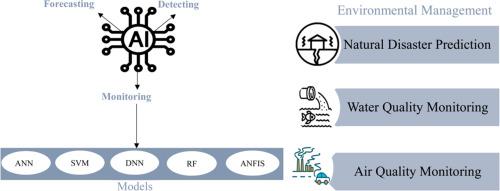Artificial intelligence in environmental monitoring: Advancements, challenges, and future directions
IF 2.7
引用次数: 0
Abstract
The application of Artificial Intelligence (AI) in environmental monitoring offers accurate disaster forecasts, pollution source detection, and comprehensive air and water quality monitoring. This article provides an overview of the value of environmental monitoring, the challenges of conventional methods, and potential AI-based solutions. Several significant AI applications in environmental monitoring are highlighted, showcasing their contributions to effective environmental management. AI technologies enhance environmental monitoring by enabling better understanding, prediction, and mitigation of environmental risks. However, realizing the full potential of AI faces hurdles such as a shortage of specialized AI experts in the environmental sector and challenges related to data access, control, and privacy. These issues are more pronounced in regions with developing technological infrastructure. The paper advocates for proactive data governance measures by governments to protect sensitive information. Despite these challenges, the future of AI in environmental monitoring remains promising, with advancements in AI algorithms, data collection techniques, and computing power expected to further improve accuracy and efficiency in pollution monitoring and management.

环境监测中的人工智能:进步、挑战和未来方向
人工智能(AI)在环境监测中的应用可提供准确的灾害预测、污染源检测以及全面的空气和水质监测。本文概述了环境监测的价值、传统方法面临的挑战以及基于人工智能的潜在解决方案。文章重点介绍了人工智能在环境监测领域的几项重要应用,展示了它们对有效环境管理的贡献。人工智能技术能够更好地理解、预测和缓解环境风险,从而加强环境监测。然而,充分发挥人工智能的潜力面临着各种障碍,例如环境领域缺乏专业的人工智能专家,以及与数据访问、控制和隐私相关的挑战。这些问题在技术基础设施不断发展的地区更为突出。本文倡导政府采取积极的数据治理措施,以保护敏感信息。尽管存在这些挑战,人工智能在环境监测领域的前景依然广阔,人工智能算法、数据收集技术和计算能力的进步有望进一步提高污染监测和管理的准确性和效率。
本文章由计算机程序翻译,如有差异,请以英文原文为准。
求助全文
约1分钟内获得全文
求助全文
来源期刊

Hygiene and environmental health advances
Environmental Science (General)
CiteScore
1.10
自引率
0.00%
发文量
0
审稿时长
38 days
 求助内容:
求助内容: 应助结果提醒方式:
应助结果提醒方式:


